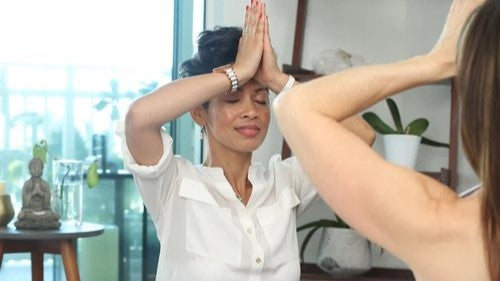Have you heard that meditation is good for anxiety? Well, mindfulness and meditation for anxiety is a growing field that can help you navigate the many ways that anxiety can affect your life. This guide is not meant to serve as a diagnosing tool or a treatment path – it's simply a collection of practices and research you can turn to as you begin to help right your ship!
How Mindfulness Helps Anxiety…
Mindfulness is the basic human ability to be fully present, aware of where we are and what we're doing, and not overly reactive or overwhelmed by what's going on around us. When you become aware of the present moment, you gain access to resources you may not have realized were with you all along – a stillness at your core. An awareness of what you need and don't need in your life that's with you all the time. You may not be able to change your situation, but mindfulness offers the space to change your response to it.
The 3 Steps to Calm Anxiety…
-
Open your Attention to the Present Moment
The whole point is to bring attention to our experience in a wider and more open manner that isn't really involved with selecting or choosing or evaluating but simply holding – becoming a jar for thoughts, feelings or sensations in the body that are present and determining if we can watch them from one moment to the next.
-
Focus on the Breath
Let go of the widescreen and bring a focus that's concentrated and centred on breathing in one area of the body – the breath of the chest, or the belly, the nostrils, or anywhere that the breath makes itself known, and concentrate on that.
-
Bring Attention to your Body
Become aware of the feelings and sensations in the body as a whole, sitting with the whole breath, and the whole body, once again move back to a wider and spacious jar of attention for our experience.

